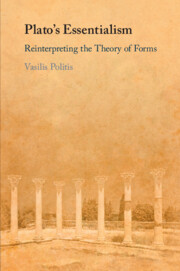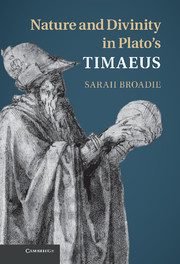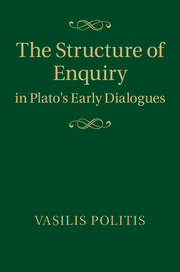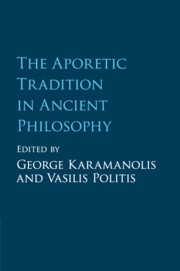Plato's Essentialism
In this book, Vasilis Politis argues that Plato's Forms are essences, not merely things that have an essence. Politis shows that understanding Plato's theory of Forms as a theory of essence presents a serious challenge to contemporary philosophers who regard essentialism as little more than an optional item on the philosophical menu. This approach, he suggests, also constitutes a sharp critique of those who view Aristotelian essentialism as the only sensible position: Plato's essentialism, Politis demonstrates, is a well-argued, rigorous, and coherent theory, and a viable competitor to that of Aristotle. This book will appeal to students and scholars with an interest in the intersection between philosophy and the history of philosophy.
- Demonstrates the relevance of Plato's theory of Forms to historical and contemporary debates on essentialism
- Bridges the gap between philosophy and the history of philosophy
- Challenges the predominant view among contemporary philosophers that Aristotelian essentialism is the only sensible position
Product details
No date availablePaperback
9781108986557
261 pages
228 × 152 × 14 mm
0.39kg
Available
Table of Contents
- Introduction
- 1. Why Cannot the ti esti Question Be Answered by Example and Exemplar? Hippias Major
- 2. Why Cannot Essences, or Forms, be Perceived by the Senses? Hippias Major. Phaedo. Republic
- 3. Why are Essences, or Forms, Unitary, Uniform and Non-Composite? Why are they Changeless? Eternal? Are they Logically Independent of Each Other? Phaedo and Republic
- 4. The Relation between Knowledge and Enquiry in the Phaedo
- 5. Why are Essences, or Forms, Distinct from Sense-Perceptible Things? Phaedo 74 and Republic V. 478–479
- 6. Why are Essences, or Forms, the Basis of all Causation and Explanation? Phaedo 95–105
- 7. What is the Role of Essences, or Forms, in Judgements about Sense-Perceptible and Physical Things? Republic VII. 523–525
- 8. Why does Thinking of Things Require Essences, or Forms? Parmenides
- 9. Why are Essences, or Forms, Separate from Physical Things? Also Timaeus and Philebus
- 10. What Yokes Together Mind and World? Phaedo 99–100 and Republic VI. 505–509
- Conclusion: Forms Simply are Essences, not Things that have Essences.






